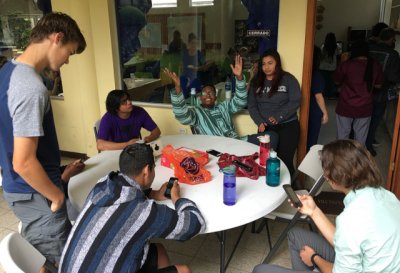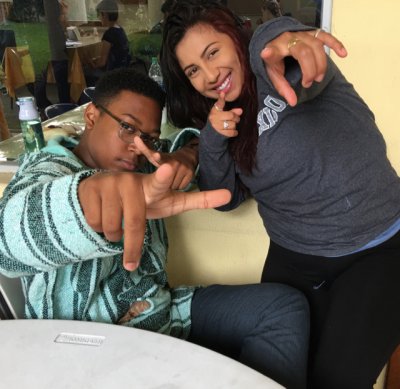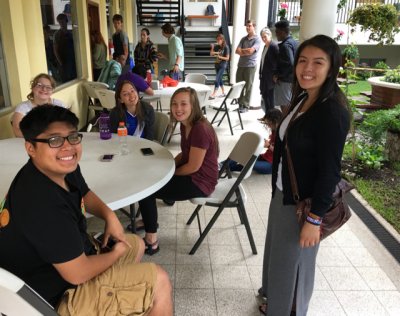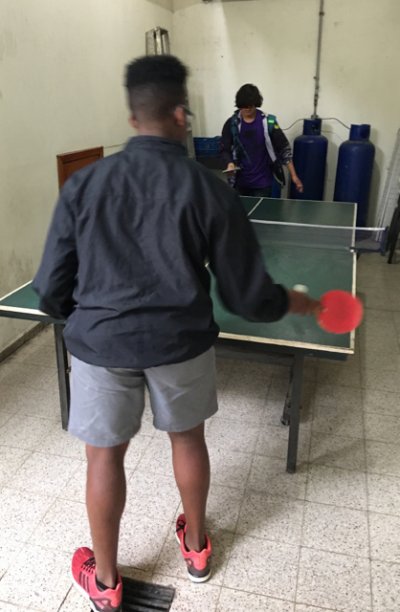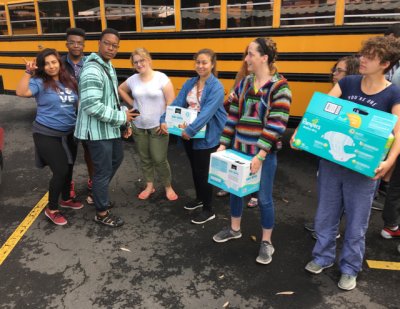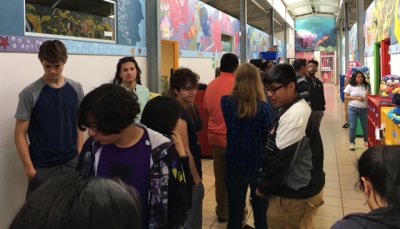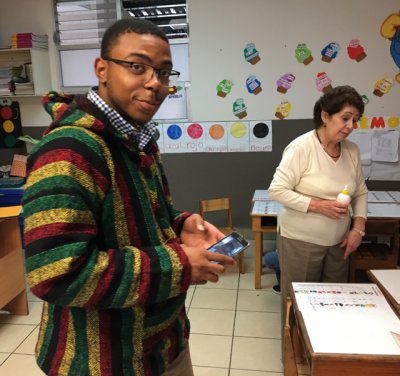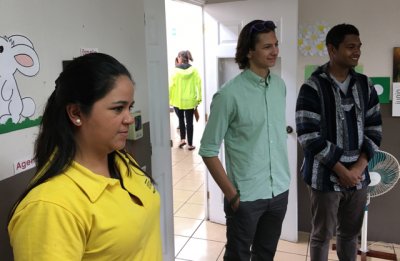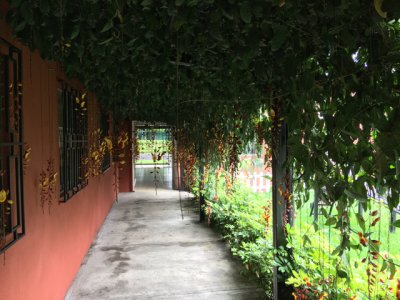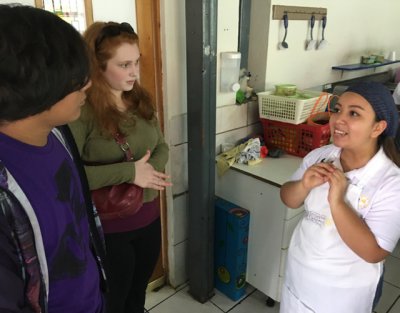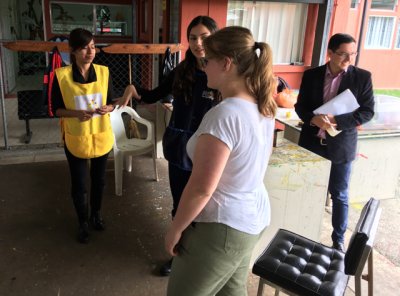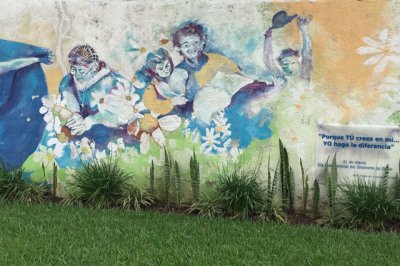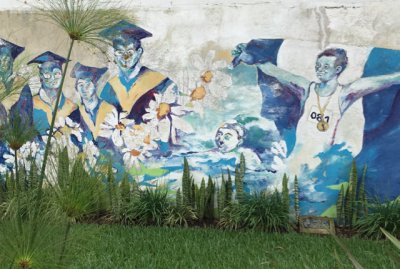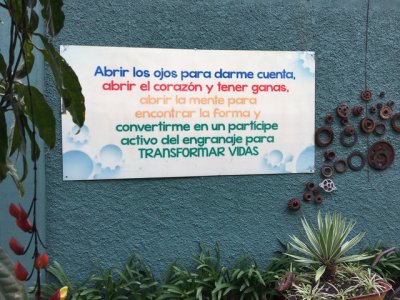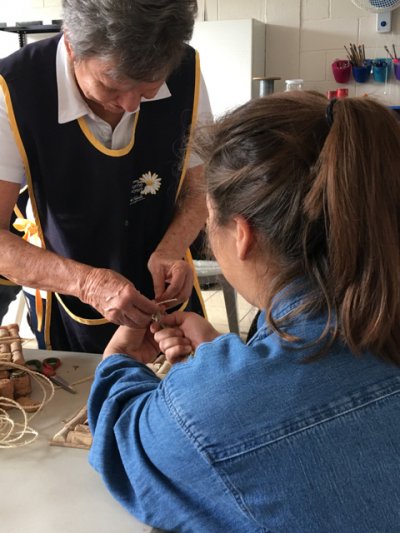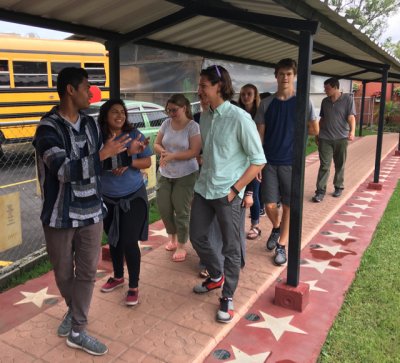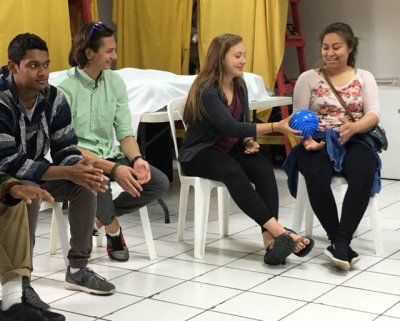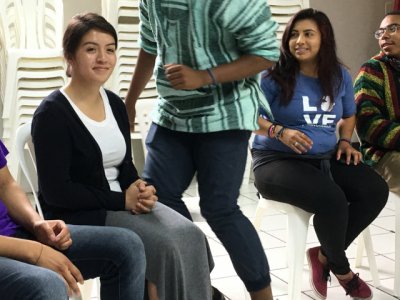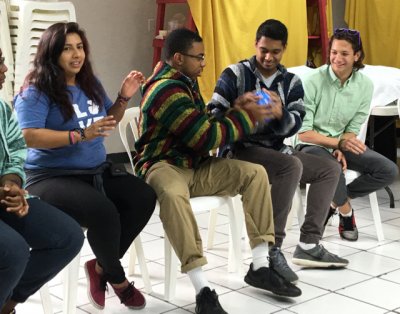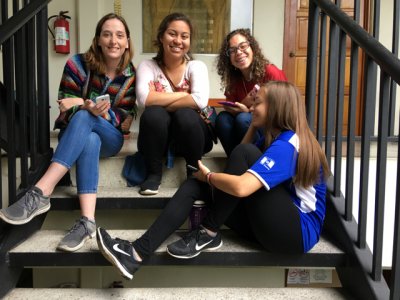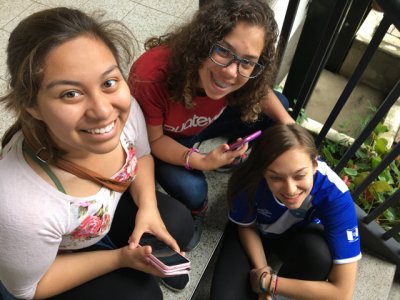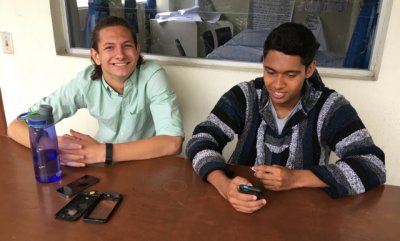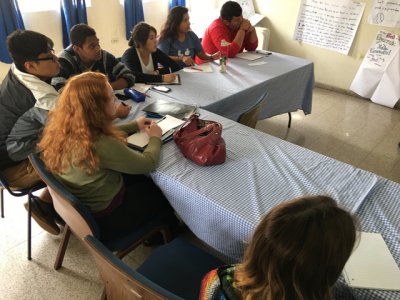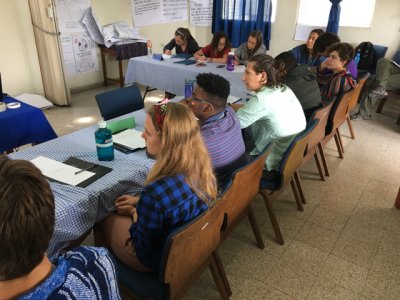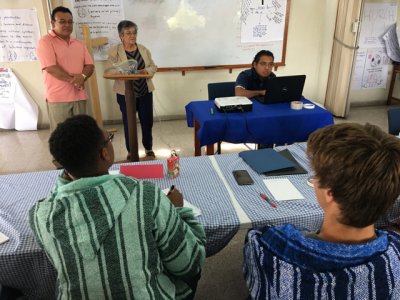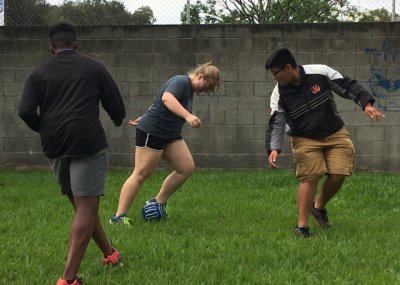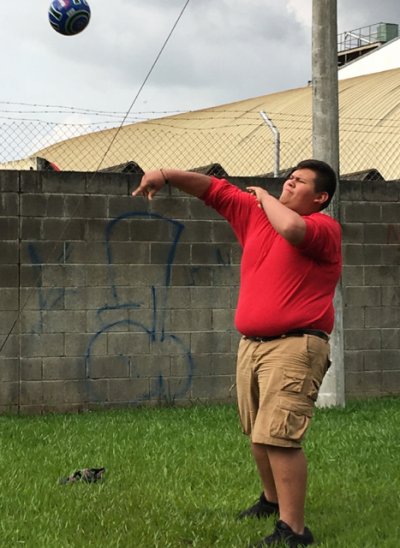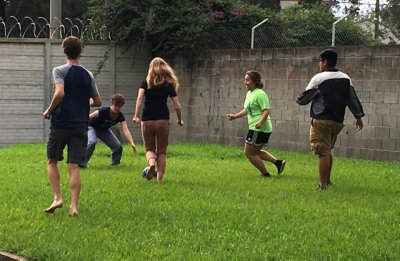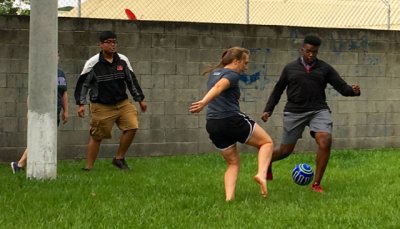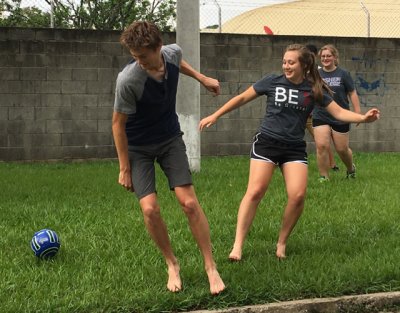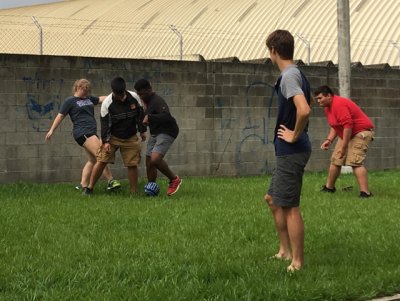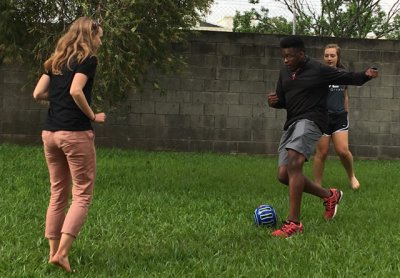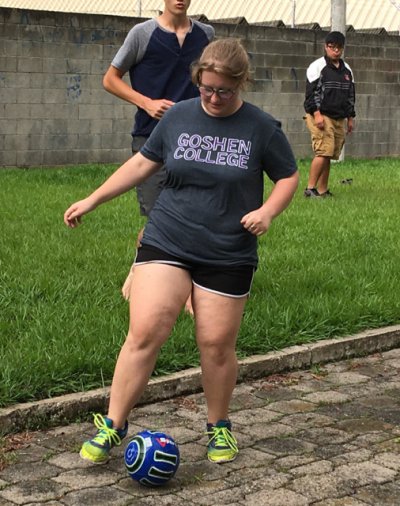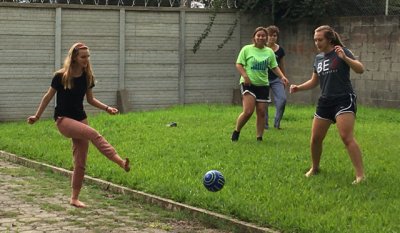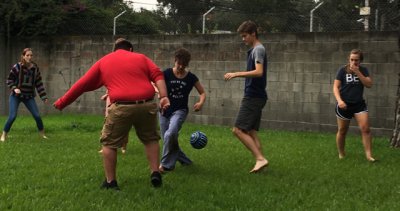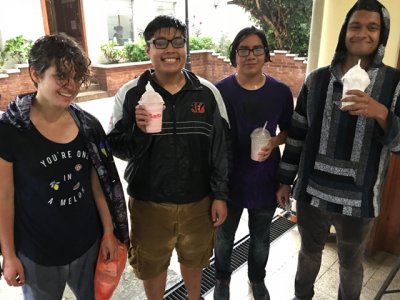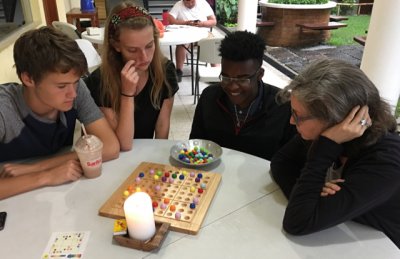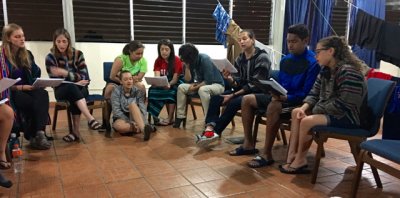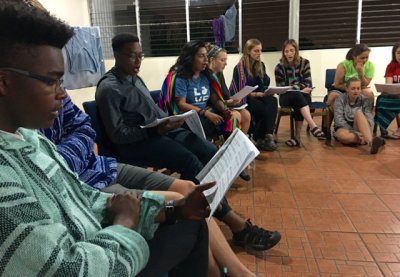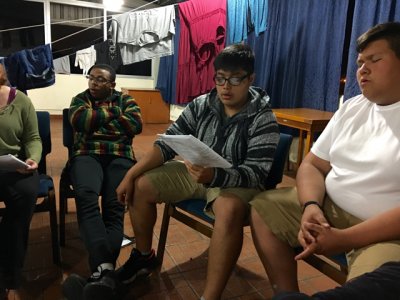School Visit, Human Rights Lecture, Youth in Guatemala
Today had three significant components, creating what was perhaps our most provocative and moving days thus far in Guatemala City: a visit to Margarita Tejada School, a lecture on human rights in Guatemala, and a lecture about youth experiences in the country.
We traveled nearly an hour to a distant zone in Guatemala City to visit the Margarita Tejada School, the only school in the country designed for children and adults with Down Syndrome. The school receives 70 percent of its funding from the government, and then raises the remaining funds through sales of crafts, selling paintings by Guatemalan artists and donations. Students were able to spend about an hour and a half in different classrooms, with one or two students assigned to a class. To honor the school’s wishes, we are posting some photos at the school but not with any of the children, even though SSTTers loved interacting with this group of lively, creative, loving kids. At least a couple of the students said they could see themselves working in a school like this in the future.
We returned to the seminary campus for lunch, then had a lecture by Olga Piedrasanta on “Peace, Justice and Human Rights in Guatemala.” She gave us loads of statistics on infant mortality rates, life expectancy rates, amounts of various forms of violence, and human rights abuses. She spoke about violence against women, and noted that 83 percent of Guatemalan women-led households are poor, while only 2.1 percent of male-led households are poor. She also spoke about violence against women, and the reality that only recently were Guatemalan laws put into place against various forms of femicide. Professor Piedrasanta also noted that for a Guatemalan family of four, an income of $1,164 a month is needed to feed the family and pay fixed expenses, while the minimum wage is about $386 per month.
Following the lecture, some students caught up on journal writing, others rested or slept, and others engaged in a rousing game of soccer on what is apparently a dog-walking grassy area in our neighborhood, as Nate and others who slipped in poo soon learned.
After dinner we heard from Israel Ortiz, a 29-year-old sociologist who spoke on “Being Youth in a Challenging Setting.” His lecture, too, was rather incredible. Although soft-spoken, his passion, Christian commitment, engagement with the world, and integrity showed through in everything he said, particularly in response to students’ questions. He noted that 70 percent of all Guatemalans are under 30, and that about 2 million of the 6 million children and young people who should be in primary or secondary school are outside the education system, partly because of geographic isolation, costs, or gang violence. He noted that about 2 million Guatemalans live in the U.S., and 40 percent of those are between 20 and 25 — young people who move when they have no good options in Guatemala. He added that about 30,000 of those young Guatemalans are deported from the U.S. each year. In addition, he noted that most of the homicide victims in Guatemala are male, young and poor; addressed the question of structural racism; and said that conversations about race in Guatemala are just now beginning.
Acknowledging that he would like to be mayor of his city someday, he spoke about his commitment to being involved in something that benefits the public good. He’s currently involved with Movimiento Semilla (the same name as the seminary, but not related — “semilla” simply means “seed”), which is evolving into a political party. When asked by Noah how faith has guided him, he said, “Faith has liberated me, because it has allowed me to see reality with new eyes … In the university where I studied, people said religion kept people from seeing reality, that it made them focus only on an afterlife. But that’s not what happened for me. I believe in Jesus’ liberating agenda. My faith has helped me open my eyes.”
For five years after finishing his undergraduate studies, Professor Ortiz said he worked with the Guatemalan equivalent of Intervarsity, largely because he wanted to work with those who were privileged enough to go to university. Knowing that these people would have influential positions of power within the next several years, he wanted to help influence and shape their faith with the hope that it would ground and transform their commitments. He talked about his own knowledge of and passion for political issues, but says he realizes that the Apostle Paul was right: that if you “have not love, you are nothing.” We were moved by his testimony.
We finished the evening with worship led by Diana, Greta, Lena, Noah and Ebony, and students are now relaxing and chatting on the floor. Quiet time comes soon, so we’ll be settling down within the next half hour.
Cade wrote in one of his recent journals (quoted here with permission): “Through these classes I have come to recognize that following Jesus is a constantly evolving, life-long process but no matter where you are, you can always learn something different to either fit better within the cultural context or deepen your own connection with God. This is inspiring to me because I am reassured that I don’t have to worry about knowing everything right now, or ever. I will learn things through experiences I have yet to partake in, things I have yet to read and write, and people I have yet to talk to and meet. This is very exciting for me and this class has helped energize me to continue in the same general direction I’m headed.”
Similarly, Jahari wrote (quoted here with permission): “I think that although a number of Guatemalans are going through different types of hardships, God still wants them to continue having faith in him. God gives us “tests” and I’m not sure if some people being put through suffering is his plan, but I do know that God does not want us to give up on him or what he can do. I think that through this trip, God is calling me to be more attentive to issues that occur outside of my life and my country, to become more aware of things such as injustices that other people go through. I think that if I can understand the past history of an individual life, I can share it with others and may impact their life as well. Journeys like this SSTT trip have opened me up to that, and when I travel back home, I can share this experience and the stories of many people I encountered, and hopefully encourage them to look at their own life differently, especially in a theological way … Applying to this SSTT program was the best (or one of the best) decisions I’ve ever made.”
